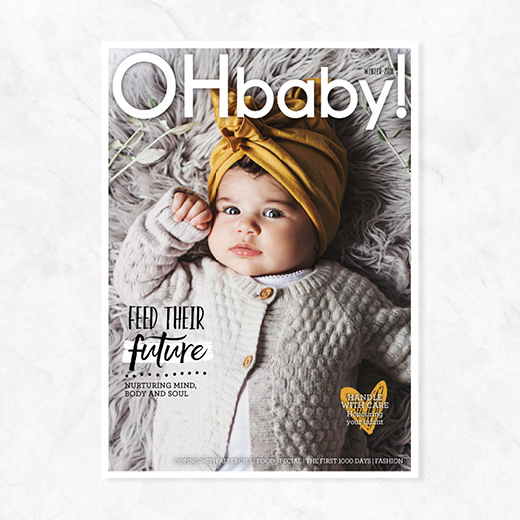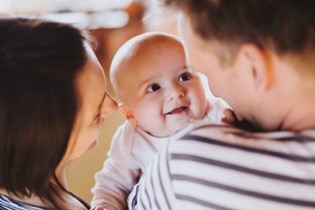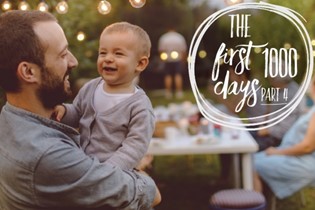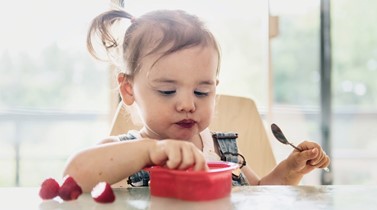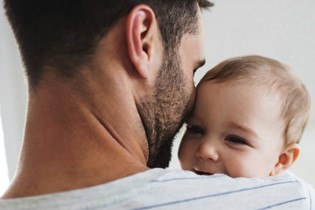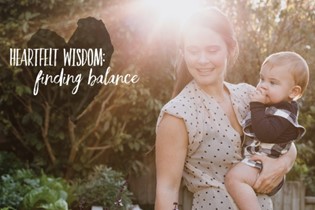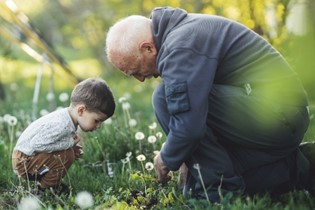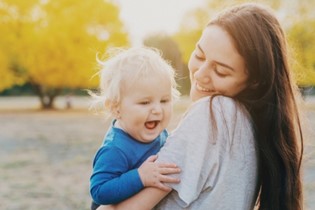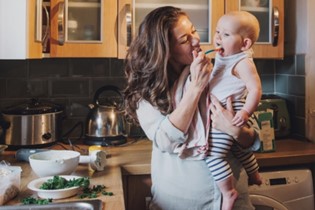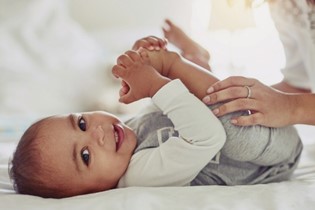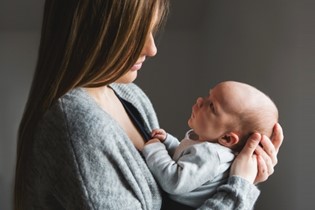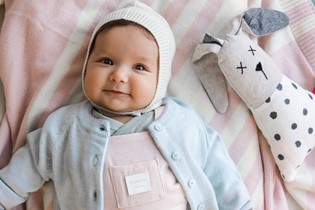House of Grace: a haven for young mums
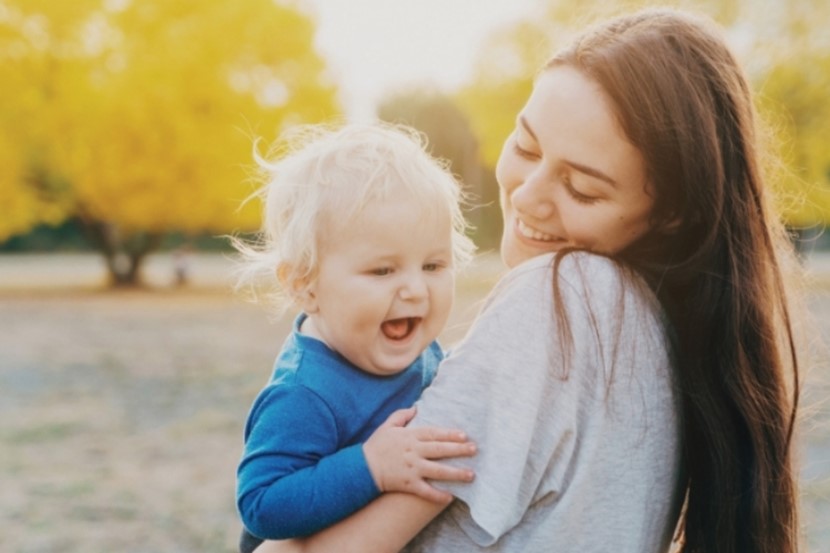
Sarah Tennant talks to the founders and some former residents of House of Grace, a home for struggling young mothers.
The suburb is serene and leafy, verging on posh. The house is an immaculately painted Cape Cod, accented with box hedging and standard roses. Inside, a few women and teenage girls are playing board games. A baby sleeps in a pram.
It’s homely, gracious and not what you might expect. Because this is Hamilton’s House of Grace – one of two family-based homes for young, struggling mums.
A superficially similar concept – the ‘maternity home’ or Home for Unwed Mothers – has existed in New Zealand for decades and has a deservedly dark reputation. Back when teenage pregnancy was unspeakable, girls would be sent ‘up north’ (or ‘down south’, depending which was furthest from the town gossips) to be cloistered away until their baby was born and safely shipped off to a married couple.
The luckier girls got to board with far-flung relatives; the less fortunate were sent to institutions where rape victims, intellectually disabled women and the so-called ‘dirty girls’ were lumped in together and forced to work – hard – for their board. Once their babies were born, mothers were expected to relinquish them – an expectation backed up by threats, coercion and sometimes outright trickery. To this day, Kiwi adoption forums are filled with messages from women trying to get in contact with their stolen babies.
Nowadays we look back in horror at these institutions. But while attitudes have changed – eg acceptance of teenage pregnancy and single motherhood – the facilities to care for the increase in young and unprepared parents haven’t kept pace, and for many, their own home isn’t a safe and supportive environment. The Homes for Unwed Mothers have closed down, but what do we have in their place?

Hearing the call
This was the issue that Wellington couple Treena and Marcus van Rijssel wrestled with in 1999. After opening their home to a pregnant teenager, Treena and Marcus discovered the lack of options for such women in NZ. There were large facilities that could hold nearly twenty women, with rostered care staff; there was the Salvation Army’s Bethany house (which closed in 2011 due to financial difficulties); but there was no home-based, family-led model of care which could show young parents what a good life might look like. That’s what Treena and Marcus felt was needed: to prepare mothers for real life in real life, not in an institution. For them, it was not just a dream, but a calling.
So after visiting the US to research models of care, the van Rijssels started the House of Grace as an NPO in 2001. By 2005 they were able to purchase the first house in Wellington; in 2015 they bought a second in Hamilton. Between the homes, House of Grace has helped over 250 women and their babies.
The principles underlying the House of Grace are straightforward. Young mums and mums-to-be aged from 12 to 25 are eligible to apply. The organisation is openly faith-based, but residents aren’t required to participate in religious activities. The houses are small – there’s room for only four residents plus their babies, along with the house-parents and their own children, in each home. Demand for places is high, so residents are selected after careful interviewing, determining whether they’ll be likely to get along with current residents and – importantly – whether or not they really want to be there. The rules are pretty simple: no visitors in the bedrooms; no drinking, drugs or smoking; clean language; and everyone pitches in with housework. Aside from that, there’s a lot of freedom.
Security and independence
As area manager Michelle emphasises, the House of Grace isn’t a prison or a boarding school – it’s a place where adulthood and responsibility are encouraged and expected. Some residents go to school; some have their own cars; some visit their parents on the weekends. Healthy relationships with the babies’ fathers are encouraged. Residents are expected to organise their own prenatal appointments and, for the most part, take care of their own babies. They also learn to budget, make life plans and learn first aid, and they take antenatal and parenting classes.
In the meantime, and most importantly, everyone just lives together. As one former resident described it: “The baby’s father would come and visit and spend time with the whole family – he was also shown a kindness and support that he needed in that time. I was fed well, we watched movies together, we ate dinners together and had turns cooking, baking and cleaning”.
And of course, there’s the comradeship of pregnant women all in it together – some still in the morning-sickness stage, some gearing up to give birth, some with newborns – sharing their newfound expertise and learning what breastfeeding and burping look like in real life. During mealtimes new mums get a chance to eat while other household members help care for their babies.
By the time the babies are three months old, most residents are ready to move out – though the house-parents stay in touch and offer support as long as it’s needed.
The House of Grace homes are also open to mothers who have lost full-time custody of their babies. Here the mothers can parent their babies in a supervised environment, learning parenting techniques and life-skills, while the house-parents work with social workers to determine when the mothers are ready to regain custody.
Feeling the push
As you’d expect, there are organisational nightmares from time to time! To comply with child safety regulations, the House of Grace has a policy that residents can’t be left at home alone. Hamilton house-mother Alana sometimes has to bundle up several residents, various babies and her own children into their (donated) eleven-seater van in order to take just one person to an appointment. Her heroes are the volunteers who come and visit so she can go out and run errands.
At times Alana finds her job more hands-on than she expected. One night a resident went into labour which progressed rather quickly, and Alana found herself supporting her through an unplanned homebirth. The midwife made it in time to catch the baby, but Alana was there all the way through – in between shooing the other residents back to bed when they got curious!
For Alana and the other House of Grace workers, though, it’s absolutely worth it. Michelle and Treena echoed Alana’s thoughts when they described the joy of seeing a young mum fall in love with her baby and plan for a bright future. The residents feel it too: as one woman put it: “I still remember the little things like the gorgeous hand-knitted cardigans and blankets – things people had made and donated because they cared. But it wasn’t just about getting baby essentials. What struck me was the generosity and kindness of people we didn’t even know. It really shifted my outlook from one of hopelessness to one of hope”.
Quietly, unobtrusively, blanket by blanket, meal by meal, the House of Grace is changing lives.
|
Even after Jennah took an overdose of medication as a cry for help, she didn’t find support – the hospital’s mental health team somehow declared her ‘low risk’ and sent her back home. Very reluctantly, seeing no hope anyone would give her actual support, she agreed to a termination. But a few days before it was scheduled, a social worker came to visit and asked if Jennah would be willing to check out a place she’d heard of – the House of Grace. Jennah jumped at the chance and packed her bags on the spot. The Wellington house was an hour-and-a-half drive away, and Jennah arrived still weak and nauseated from her overdose. She remembers an immediate feeling of acceptance and love. House-mother Natalie made smoothies to tempt her upset stomach; house-father Glen told jokes to make her laugh, and the couple’s four children accepted her unquestioningly into their home. As Jennah recalls, “The Friday was the day that I was booked to have a termination and I actually forgot all about it. I think I just felt safe and supported enough in the home to have my baby”. Jennah ended up staying for a few months, cooking and cleaning with the family, watching movies together and visiting with Hayden, the baby’s father. Eventually their relationship felt solid enough that she was comfortable leaving the House to move in with him. It wasn’t all smooth sailing from there – little Ellie was born at 29 weeks and spent months in hospital. But Natalie and other House of Grace staff visited the hospital, kept in contact and sent gifts and supplies to the young family. They checked in periodically until Jennah let them know she was ready for more independence. Nine years on, Jennah and Hayden are celebrating their eight-year wedding anniversary, and Jennah is in her final year of study for a degree in social work. She says of her house-parents, “Natalie and Glen started off being mentors [for me and Hayden] and have now become family. It has been nearly nine years, and although we live in different towns, we are still involved in each others’ lives”. |
|
KEEN TO HELP Fortunately, there has been a huge local response to the charity, with all manner of donations flooding in – everything from plumbing work to knitted booties, cleaning products to ice cream. Treena has been amazed by the support of local businesses in particular, which have run fundraisers, donated a percentage of their profits, and donated products to the Houses. If you’re interested in donating money, the House of Grace website has bank details for direct transfer as well as a Givealittle page. The House of Grace Facebook page occasionally mentions a specific need, such as a chest of drawers or a set of sheets. Donations such as supermarket vouchers are always very welcome as well, as are items like tinned food, baby towels and toilet paper. If you’re interested in running a fundraiser for the House of Grace, or if you’re local to Wellington and Hamilton and interested in volunteering, contact the House of Grace via their Facebook page or website contact form. |
Sarah Tennant lives in Te Awamutu with her husband and three children (and another on the way). She writes about birth and babies.

AS FEATURED IN ISSUE 42 OF OHbaby! MAGAZINE. CHECK OUT OTHER ARTICLES IN THIS ISSUE BELOW
